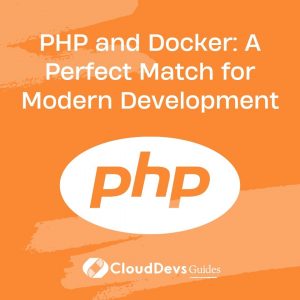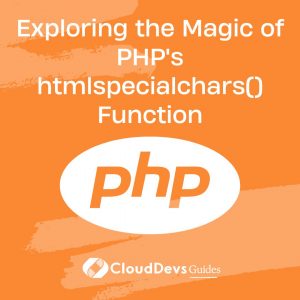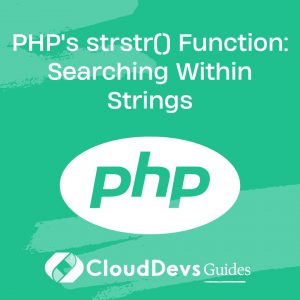PHP and Docker: A Perfect Match for Modern Development
In today’s fast-paced software development landscape, developers face numerous challenges, such as ensuring consistent environments, seamless scalability, and efficient deployment processes. PHP, being one of the most popular server-side scripting languages, has revolutionized web development. However, to fully leverage its potential, developers need a robust platform that facilitates smooth integration, deployment, and scaling.
Enter Docker – a powerful containerization platform that has revolutionized how applications are developed, deployed, and managed. Combining the flexibility and versatility of PHP with the containerization prowess of Docker creates an ideal environment for modern development.
In this blog post, we will explore how PHP and Docker complement each other, the benefits they bring to the table, and how this perfect match simplifies and enhances the development workflow.
1. Understanding Docker and Containerization
1.1 What is Docker?
Docker is an open-source platform that enables developers to automate the deployment, scaling, and management of applications using containers. Containers encapsulate an application and its dependencies, ensuring consistency across different environments. Docker facilitates the creation, distribution, and execution of containers, providing developers with a reliable and portable environment for their applications.
1.2 Benefits of Containerization
- Isolation: Containers encapsulate applications, ensuring they run consistently across various environments without interference from the underlying system.
- Portability: Containers can run on any platform that supports Docker, making it easy to move applications between development, testing, and production environments.
- Scalability: Docker’s container orchestration capabilities allow applications to scale effortlessly to meet demand, ensuring optimal performance under varying workloads.
- Resource Efficiency: Containers share the host OS’s kernel, reducing resource overhead and allowing more efficient utilization of system resources.
2. PHP and Docker: The Perfect Pair
2.1 Streamlined Development Workflow
Using Docker with PHP streamlines the development workflow by providing a consistent and isolated environment for developers. With Docker containers, developers can avoid the infamous “it works on my machine” scenario, ensuring that the development environment mirrors the production setup accurately. This consistency minimizes compatibility issues and reduces the time spent on debugging and configuration.
2.2 Easy Dependency Management
PHP applications often rely on specific versions of extensions, libraries, and dependencies. Managing these dependencies across different projects and environments can be challenging. Docker simplifies this process by containerizing the application along with all its dependencies, ensuring that each project has its isolated environment with the required dependencies. This eliminates version conflicts and simplifies dependency management.
3. Dockerizing a PHP Application
3.1 Dockerfile: Building the Image
To containerize a PHP application, we need to create a Dockerfile – a text file that contains instructions for building the Docker image. Let’s create a simple Dockerfile for a PHP application:
Dockerfile # Use the official PHP image as the base image FROM php:latest # Set the working directory inside the container WORKDIR /var/www/html # Copy the PHP application files to the container COPY . /var/www/html # Expose port 80 to access the application EXPOSE 80 # Start the PHP development server CMD ["php", "-S", "0.0.0.0:80"]
This Dockerfile instructs Docker to use the latest PHP image as the base, set the working directory, copy the PHP application files, expose port 80, and start the PHP development server.
3.2 Building and Running the Container
With the Dockerfile in place, we can now build the Docker image and run the container:
perl # Build the Docker image docker build -t my-php-app . # Run the Docker container docker run -d -p 8080:80 my-php-app
The -t flag tags the image with a name (my-php-app), and the -p flag maps port 8080 of the host machine to port 80 of the container, allowing access to the PHP application through http://localhost:8080.
4. Simplified Deployment Process
4.1 Consistent Production Environment
Docker ensures that the production environment closely matches the development and testing environments. This consistency reduces the likelihood of unexpected issues when deploying the application to production. Developers can package the application and its dependencies into a container, which can then be deployed on any server that supports Docker, without worrying about system-specific configurations.
4.2 Easy Scaling and Load Balancing
Container orchestration tools like Docker Swarm or Kubernetes allow effortless scaling of PHP applications by deploying multiple containers across different servers. This enables load balancing and ensures optimal resource utilization, providing a seamless user experience even during periods of high traffic.
5. Collaboration and Teamwork
5.1 Team Collaboration Made Easy
Docker facilitates collaboration within development teams by providing a standardized development environment. New team members can quickly set up the project on their machines without any conflicts, thanks to the containerized environment.
5.2 Continuous Integration and Continuous Deployment (CI/CD)
Docker is a vital component of modern CI/CD pipelines. The ability to encapsulate the application and its dependencies into containers simplifies the deployment process, making it easier to automate testing, staging, and production deployments.
6. Conclusion
In conclusion, the combination of PHP and Docker presents a perfect match for modern development practices. Docker’s containerization empowers PHP developers to create, deploy, and manage applications seamlessly, offering consistent environments, easy scalability, and simplified deployment processes. The ability to containerize PHP applications brings numerous advantages, including easy dependency management, improved collaboration, and streamlined CI/CD pipelines.
By leveraging the dynamic duo of PHP and Docker, developers can embrace a more agile, efficient, and scalable development workflow that aligns with the demands of the modern software landscape.
So, embrace this powerful synergy and unlock the true potential of PHP with Docker – the ultimate solution for modern application development. Happy coding!
Table of Contents









